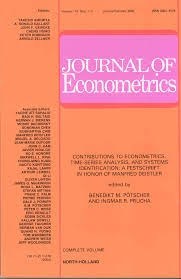
Gorgi, P. and Koopman, S.J. (2023). Beta observation-driven models with exogenous regressors: A joint analysis of realized correlation and leverage effects Journal of Econometrics, 237(2):1--21.
-
Affiliated authors
-
Publication year2023
-
JournalJournal of Econometrics
We consider a general class of observation-driven models with exogenous regressors for double bounded data that are based on the beta distribution. We obtain a stationary and ergodic beta observation-driven process subject to a contraction condition on the stochastic dynamic model equation. We derive conditions for strong consistency and asymptotic normality of the maximum likelihood estimator. The general results are used to study the properties of a beta autoregressive process with threshold effects and to establish the asymptotic properties of the maximum likelihood estimator. We employ beta autoregressive models to describe leverage effects in realized correlations for several pairs of stocks. We find that the impact of past values of realized correlation on future values is significantly higher when stock or market returns are negative rather than positive. The results also indicate that the size of the leverage depends on the magnitude of the market news as measured by daily market returns. These findings support the conjecture that correlation between stock returns tends to be higher when stock prices are falling, and lower when there is a surge in stock prices. Finally, we conduct an out-of-sample study that shows that the models with leverage effects can enhance the accuracy of point and density forecasts of realized correlations.